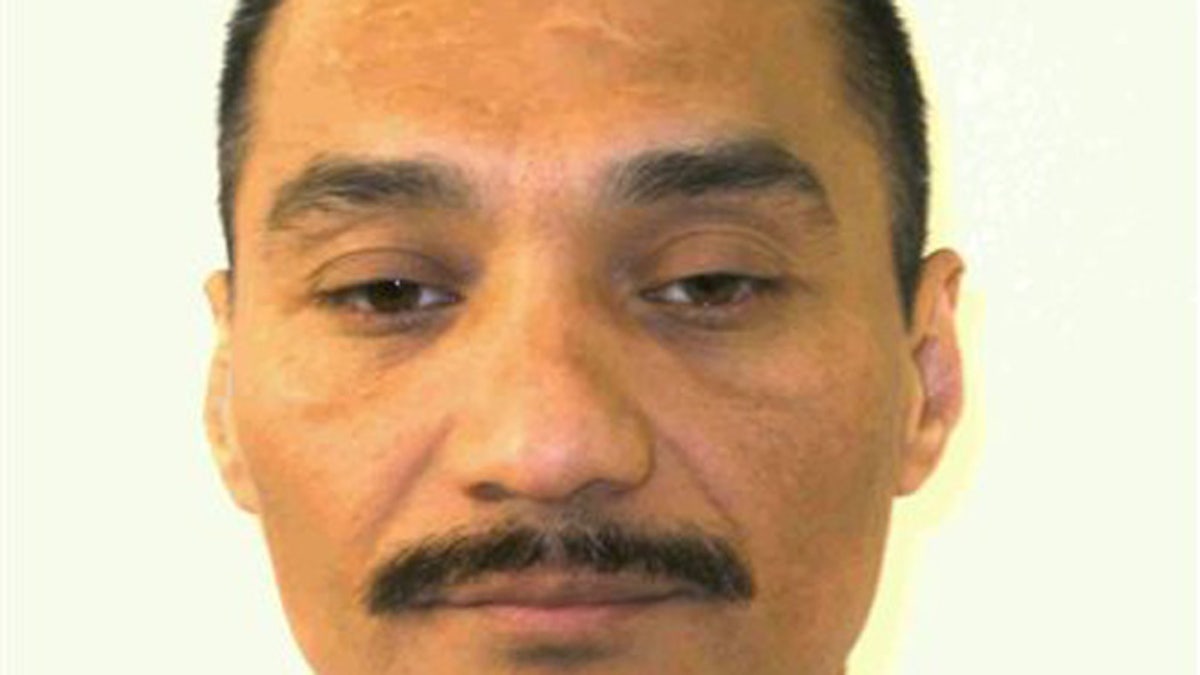
This undated photo provided by the Virginia Department of Corrections shows inmate Alfredo Prieto. (Virginia Department of Corrections via AP)
RICHMOND, Va. – A twice-condemned serial killer who claimed he was intellectually disabled was executed in Virginia on Thursday after a series of last-minute appeals failed.
Alfredo Prieto was pronounced dead at 9:17 at the Greensville Correctional Center in Jarrat. The 49-year-old was injected with a lethal three-drug combination, including the sedative pentobarbital, which Virginia received from Texas.
Prieto, wearing jeans and a light blue shirt, showed no emotion as he was strapped to the gurney.
"I would like to say thanks to all my lawyers, all my supporters and all my family members," he said, before mumbling, "Get this over with."
The El Salvador native was sentenced to death in Virginia in 2010 for the murder of a young couple more than two decades earlier. Rachael Raver and her boyfriend, Warren Fulton III, both 22, were found shot to death in a wooded area a few days after being seen at a Washington, D.C., nightspot.
Prieto was on death row in California at the time for raping and murdering a 15-year-old girl and was linked to the Virginia slayings through DNA evidence. California officials agreed to send him to Virginia on the rationale that it was more likely to carry out the execution.
He has been connected to as many as six other killings in California and Virginia, authorities have said, but he was never prosecuted because he had already been sentenced to death.
Prieto is the first inmate to be executed in in Virginia in nearly three years. The last execution took place in January 2013, when Robert Gleason Jr. was put to death in the state's electric chair, which inmates can choose over lethal injection. Gleason had been serving a life in prison for a 2007 murder when he killed his cellmate in 2009.
Virginia's lethal injection protocol calls for the use of pentobarbital, a sedative, at the beginning of the execution. That's followed by rocuronium bromide, which halts an inmate's breathing, and potassium chloride, which stops the heart.
Prieto's attorneys filed a lawsuit Wednesday seeking to halt the execution until Virginia officials disclose more information about the supply of pentobarbital, which Virginia received from Texas because another sedative it planned to use expired.
Among other things, his attorneys sought to force the state to disclose the name of the compounding pharmacy, which Texas is allowed by law to keep secret. His attorneys said they were concerned about the quality of the drugs and whether they would bring Prieto "gratuitous and unnecessary pain."
Prieto had also asked the U.S. Supreme Court to intervene, saying he's intellectually disabled, and therefore ineligible for the death penalty. But the high court declined to grant his requests to stay the execution on Thursday.
His attorneys argued that the state should reconsider whether Prieto is intellectually disabled because the measure used during his 2008 trial was unconstitutional. The Supreme Court ruled last year that Florida can't use rigid cutoffs on IQ test scores to determine whether someone is intellectually disabled. Virginia had a nearly identical law.








































